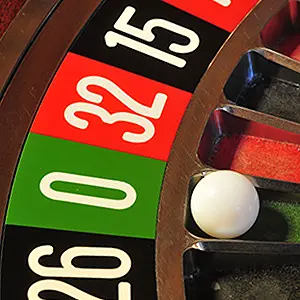How Scientists Beat the House at Roulette with Chaos Theory
George | September 28, 2018

There is a common belief among professional gamblers that the best strategy for winning at Roulette is not to play. However, this didn’t stop a group of chaos theorist scientists from trying to beat the game. In 2012, the American Institute of Physics published a journal called Chaos on the game of Roulette, focusing on Roulette.
Understanding Roulette and its appeal
At first glance, a Roulette table looks like a series of random numbers with a little white ball hopping around the wheel. With seemingly no impact on the game, you might wonder why people often choose to play Roulette at casinos and on betting sites. The main appeal of this table game is its social nature. Unlike other casino games where you compete against opponents, Roulette has no “sides”. Everyone can make the same bets, making it an extremely fun game to play with friends.
Applying chaos theory to Roulette
Chaos theory is the mathematical study of unpredictability. It suggests that within the randomness of a chaotic system, there are underlying patterns. Scientists used this theory to attempt to “beat the house” at Roulette. This method wouldn’t be viable on casino game apps but could work if you physically visit a casino.
The American Institute of Physics’ research paper suggested that the anticipated return on a random Roulette bet was -2.7%. However, by strategically betting according to their predictions, they could achieve a return of around 18%. This was tested using both a simulation and an actual Roulette wheel.
Methods and limitations
Casinos frown upon gamblers who use precise measurements and computer simulations to gain an advantage. To address this, researchers developed a method of predicting Roulette outcomes that could be used discreetly. They suggested observing the time it took for the ball to pass a fixed point to approximate its velocity. Although this produces “noisy” results, it can still yield feasible predictions.
To improve odds further, they recommended finding a wheel where the ball drops from one side of the rim, known as a crooked table. However, it’s important to note that most methods featured in the research couldn’t be deployed under normal gambling conditions.
Practical implications and final thoughts
The model used in the research did not account for minor changes such as surface friction, wheel level, or the croupier’s ball spin. These small factors can significantly impact the game’s outcome due to the nature of chaos theory. If casinos make minor adjustments, it would drastically reduce the gambler’s advantage.
In conclusion, while the research showed that strategic betting could improve returns, it is probably best for professional gamblers to stick to poker games where math and skill dominate over chance.